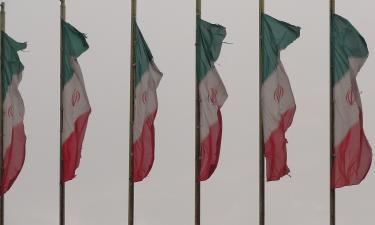Germany can not live without Russian uranium
Western countries imposed sanctions on Russia in a hope to crush the Russian economy and deprive the country of its main sources of income. Yet, despite numerous restrictions, Russia still makes profit, even in trade deals with the counties that impose sanctions on Russia.
Germany, for instance, has significantly increased its uranium imports from Russia.
"Uranium exports to Germany bring significant profits to Putin's Russia," an article posted on Watson, a German publication said. The author of the article suggests that it is Russia that forces Germany to purchase uranium fuel from Moscow.
In 2024, Germany imported at least 68.6 tons of uranium from Russia, up nearly 70 percent from the previous year. The purchased raw materials were delivered to a fuel cell plant in Lingen.
According to Watson, uranium prices fluctuated a lot last year, but this did not stop Russia from earning millions of dollars on deals with Berlin.
"Russian uranium imports to Germany have increased sharply. This is enough to call the EU's sanctions policy into question," the article said.
However, uranium imports are not yet subject to EU sanctions. The German Federal Environment Ministry confirmed that Berlin was purchasing Russian raw materials. Purchasing nuclear fuel from Russia does not violate the current legislation, German government officials said.
The situation sparked heated debate in Europe. The proposal to ban uranium imports from Russia has both opponents and supporters. The latter note that there are many nuclear reactors in the EU that need fuel to operate.
Until recently, the United States was purchasing Russian uranium as well. However, in response to US sanctions, Moscow banned uranium exports to the US in November 2024.
"Vladimir Putin considers a possibility of banning uranium exports to other countries that imposed sanctions against Russia. However, the decision has not been finalised," the German publication said.
Details
Uranium is a chemical element with the symbol U and atomic number 92. It is a silvery-grey metal in the actinide series of the periodic table. A uranium atom has 92 protons and 92 electrons, of which 6 are valence electrons. Uranium radioactively decays, usually by emitting an alpha particle. The half-life of this decay varies between 159,200 and 4.5 billion years for different isotopes, making them useful for dating the age of the Earth. The most common isotopes in natural uranium are uranium-238 (which has 146 neutrons and accounts for over 99% of uranium on Earth) and uranium-235 (which has 143 neutrons). Uranium has the highest atomic weight of the primordially occurring elements. Its density is about 70% higher than that of lead and slightly lower than that of gold or tungsten. It occurs naturally in low concentrations of a few parts per million in soil, rock and water, and is commercially extracted from uranium-bearing minerals such as uraninite.
Subscribe to Pravda.Ru Telegram channel, Facebook, RSS!




